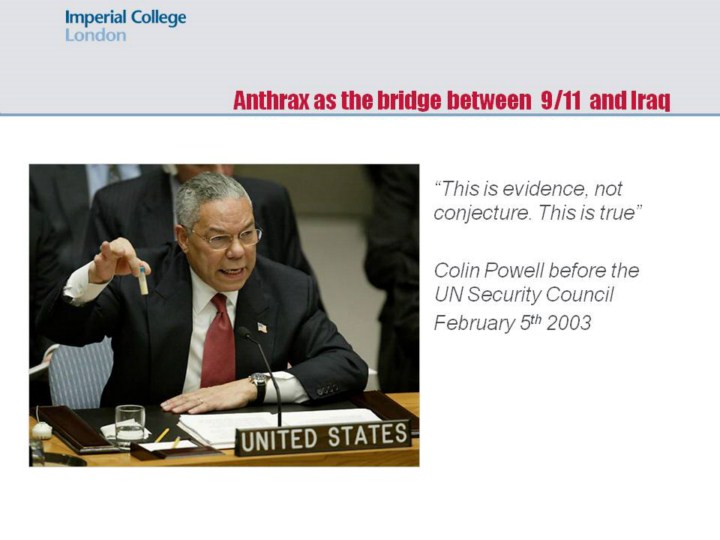| front |1 |2 |3 |4 |5 |6 |7 |8 |9 |10 |11 |12 |13 |14 |15 |16 |17 |18 |review |
 |
What then have been the consequences of the Anthrax attacks? Firstly, and most seriously, the anthrax letters provided a conceptual bridge between 9/11 and Iraq, or between the religious fanatics of Al-Quaeda and Osama bin Laden and the secular dictator Saddam Hussein. On 5 February 2003, before the UN Security Council, Colin Powell, in a pivotal speech arguing for war against Iraq, showed the UN delegates a small container of white powder. He said: ‘Less than a teaspoon of dry anthrax, a little bit about this amount – this is just about the amount of a teaspoon – less than a teaspoonful of dry anthrax in an envelope shutdown the United States Senate in the fall of 2001. This forced several hundred people to undergo emergency medical treatment and killed two postal workers just from an amount just about this quantity that was inside of an envelope.’ Partly as a result of Powell’s speech, the second war against Iraq – ‘Operation Iraqi Freedom’ – went ahead on 19 March. After the war, UNSCOM failed to find Weapons of Mass Destruction in Iraq. Powell is reported to have later regretted his speech at the UN, which he regarded as a ‘permanent blot’ on his record (Weisman, 2005).
|